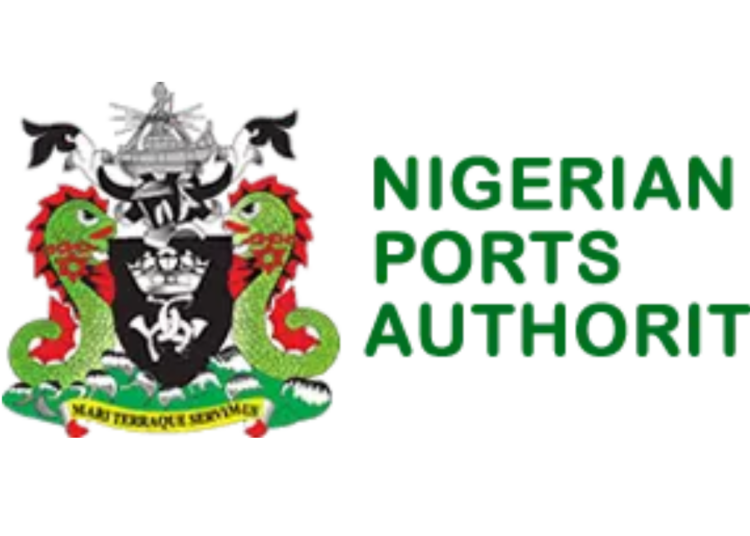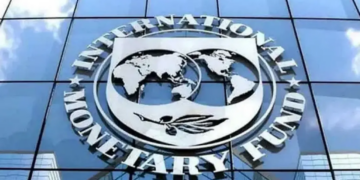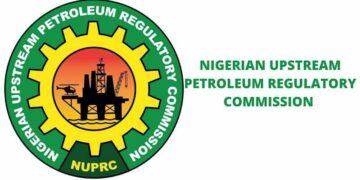The Nigerian Ports Authority (NPA), has disclosed that it would ensure that ensure only export containers in compliance with the Central Bank of Nigeria’s (CBN’s) requirements are exported out of the country.
Speaking at the RT200 Non-oil Export summit in Lagos, the managing director of NPA, Mohammed Bello-Koko, disclosed that NPA and CBN are at the conclusive stage of integrating the CBN NXP requirements.
Bello-Koko who was represented by the general manager, Public Private Partnership (PPP), Ugo Madubuike, explained that the The Trucks Transit Parks Limited (TTPL), the Tech company engaged by NPA to manage the Electronic Call Up is integrated into the scheme to issue tickets to vehicles which are expected to arrive during the time belt approved for them.
The NPA boss said, “before deployment, the turn around time for trucks accessing the ports in Lagos was about 10 days costing cargo owners about N1.3 million for transporting one containers into or out of the ports and within the Lagos. Other destinations are much costlier.
“The successful deployment of the e- call up has reduced the turn around time for truck movement in respect of trucks entering or leaving the ports in Lagos to about 48hour max and the cost of movement came down to about 300,000 max showing a savings of a million naira.
We have now moved to consolidate on the achievement by licensing Export Processing Terminals (EPTs) which kicked-off on 2nd April, 2023 and we are trying to stabilize the project.
“The NPA licenses while the venture capitalists deploy resources to fund the building and management of the facilities in line with the specifications agreed. NPA is driving this policy with support from the Nigerian Export Promotion Council (NEPC) & the Nigeria Customs Service (NCS) which has now created a Customs Export Command to specifically support this government policy. PEBEC is credited with coordinating compliance of all Government Agencies and this to ensure success of this policy.”
Explaining further, Bello-Koko, said the focus of NPA was mainly to manage the logistics surrounding the arrival of the export cargo at the port corridor.
“The NPA ensure receipt by terminal operators at port terminals & to ensure loading on the scheduled voyage on vessels leaving the port. The NPA manages the activities of terminal operators & shipping lines in this regards using its regulatory powers. The Nigeria Customs Service Export Command located at the EPTs examine & clears the export cargo which are thereafter sealed & transferred to the port for export.
“In collaboration with the Lagos State Government, traffic Management & enforcement is coordinated to ensure batching & sequencing of trucks for orderly arrival at the port.
“NPA is the gateway to the economy of the nation and a major point of interface for the country’s international trade. Our economy is import dependent & globally about 80% of cargo movement is known to be by sea due to economy of scale and NPA being conscious of its role more than 4 years earlier and following analysis of available data had developed a policy to address the realities of the inelasticity of port infrastructure to reflect anticipated increase in cargo inflow.
“The ports are transit points for discharge & to move out containers & cargoes to allow for arrival of others. Over the years, and owing to increase in cargo inflows particularly after the port reform of 2005/2006, our ports particularly Lagos ports have exceeded their ‘As built capacity for Cargo’ necessitating the need to deploy technology to improve port efficiency.”
“Therefore, for NPA, we are dealing with the practical reality of infrastructure deficit in terms of space within the confined area called a port as this ports have become a port city where physical structures development surround the ports making further expansion a challenge.”
Speaking at the event, the governor of CBN, Godwin Emefiele, disclosed that the apex bank will begin to publish and advertise the names of companies that benefit from the non-oil export rebate payment under its ‘Race to $200 billion in FX Repatriation (RT200FX) initiative’.
The RT200FX programme which was launched in 2022, was established to stimulate non-oil exports with a $200 billion FX income target in the next three to five years.
The scheme operates through different facilities such as value-added export facility, non-oil commodities expansion facility, non-oil FX rebate scheme and biannual non-oil export summit.
We’ve got the edge. Get real-time reports, breaking scoops, and exclusive angles delivered straight to your phone. Don’t settle for stale news. Join LEADERSHIP NEWS on WhatsApp for 24/7 updates →
Join Our WhatsApp Channel










